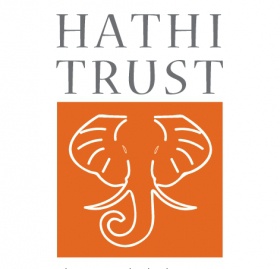
Many of us know the HathiTrust litigation as one which created huge waves in Fair Use jurisprudence in the USA. The suit, brought by Authors Guild (the same plaintiffs as in the ongoing Google Books case) in 2011, was to restrain HathiTrust from digitising literary works in which copyright still subsisted. HathiTrust had sought to digitise the works for the purpose of creation of a full-text search database, providing access to the print disabled through creation of image files of the text, and general preservation of the texts. In June 2014, the Court of Appeals had decided in favour of HathiTrust, allowing HathiTrust to digitise the works on the grounds that it constituted fair use. The Court had, however, remanded the issue of preservation of the texts to the lower Court. On January 9th, 2015, the parties in the dispute reached a settlement allowing HathiTrust to digitise the works for replacement of lost and damaged copies as well. The settlement can be accessed here. This marks the end of the litigation.
In the dispute, the Court had divided the ‘preservation’ issue into two aspects: The preservation function in itself, which involved digitising all works for the purpose of preserving them for future generations to consume after copyright lapses, and making the digitised work available to patrons in the event that the original copy is lost or damaged and a new copy is not available at a fair price. While the Court said that the former was within the realm of fair use, the latter aspect was not decided by the Court due to a locus standi issue. The settlement therefore is in favour of HathiTrust. It must be noted that it is merely a reiteration of S.108(c) of the Copyright Act which expressly allows this.
As the lawsuit had pressured HathiTrust to abandon its Orphan Works Project (where Hathi Trust proposed to freely distribute digital copies of Orphan works), the Authors Guild considers it a success. However, this is good news even for Open Access advocates because Authors Guild in a press release has confirmed that with this settlement, it will not appeal to the Supreme Court.
While an authoritative Supreme Court decision in favour of digitisation of literary works might have been ideal, there is still plenty to celebrate as the Court of Appeal’s interpretation of Fair Use is clear as well as broad. The Court used the transformative use approach in determining whether digitisation is fair use: It held that as long as the purpose of the use is transformative, it would be fair use. This can be interpreted to mean that even those who are not print disabled may access the digitised versions of archival works, older books in some fields of science, etc because the usage of such works would be for a different purpose today than when it was written. (More analysis on this here).
Interestingly, the HathiTrust Digital Library uses the works digitised by the Google Books Library Project. The digitisation by Google itself is under litigation at present, with the Circuit Court likely to come out with a decision in the next couple of months.
In other news on the digitisation and open access front, three of the plaintiffs in the Georgia State University Copyright Case asked for an “en banc” re-hearing of the case, and the request was turned down by Eleventh Circuit Court of Appeals. The case involves the creation of e-reserves of academic material by Professors for students to access. In October last year, the Court had decisively held that this constitutes fair use.
Read ARL Policy Notes’ blog post on the HathiTrust development here.
